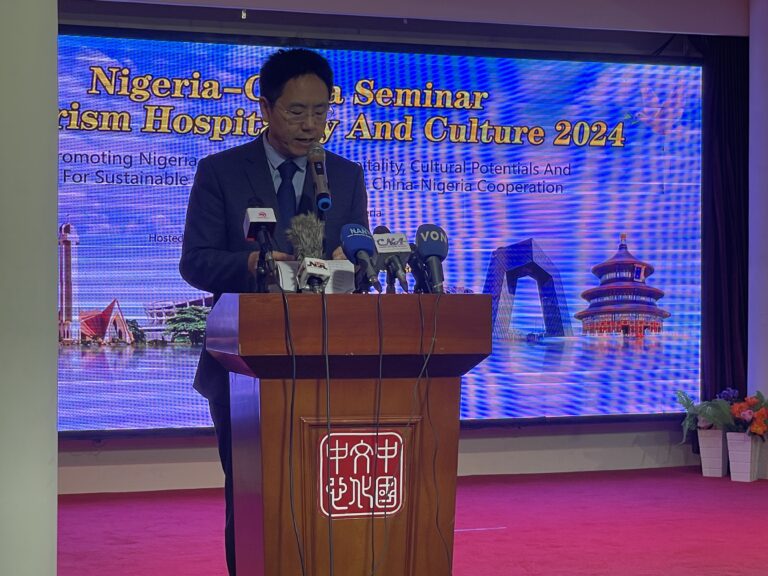- Agency Report
Mr Yang Jianxing, Cultural Counselor, Chinese Embassy in Nigeria has called on Nigeria to prioritise investment in safety, infrastructure and tourism promotion, in order to drive economic growth and development.
Yang made the call on Tuesday in Abuja during a seminar on Nigeria-China Tourism, Hospitality, and Culture 2024 themed: “Promoting Nigeria-China Tourism, Hospitality, Cultural Potentials and Services for Sustainable Development”.
Yang, who is also the Director of the China Cultural Centre, emphasised that Nigeria’s tourism sector had the potential of enhancing GDP and fostering sustainable development.
According to him, tourism not only contributes to economic growth but also fosters cultural exchange and strengthens international friendships.
“Nigeria, as the most populous country in Africa, boasts a rich history, stunning natural landscapes, and unique cultural assets, such as music, dance, art, and clothing.
“Tourism has immense potential to drive development,” Yang said.
“I hope more Chinese tourists will visit Nigeria to experience its vibrant culture, art, and natural beauty,” he said.
Yang also underscored China’s accomplishments in the tourism sector.
He said China recorded 4.89 million domestic tourists, 87.63 million outbound tourists, and 82.03 million inbound tourists in 2023, with further growth seen in 2024.
Yang also presented a global perspective referencing the World Travel and Tourism Council’s 2022 report.
It predicts an average annual growth rate of 5.8 per cent for the global tourism industry over the next decade, outpacing the global economic growth rate of 2.7 per cent.
On his part, Mr Cui Guang-Zhen, Director General of the China General Chamber of Commerce in Nigeria, echoed the call for more investments in tourism.
He also highlighted Nigeria’s cultural diversity, saying: “with over 100 languages, Nigeria is rich in cultural and tourism resources.
“Nigerian music, featuring global stars like Burna Boy and Wizkid, is already a worldwide sensation.
“However, more investment is needed to harness its tourism potential,” he said.
Cui, who has lived in Nigeria for a decade and visited popular destinations like Calabar, emphasised the need for infrastructural development and targeted initiatives to attract international visitors.
Mr Raphael Obi, Permanent Secretary of the Ministry of Arts, Culture, Tourism and Creative Economy, noted the transformative power of the tourism and hospitality sectors.
Obi, represented by Blessing Ogar, said: “these industries are pivotal drivers of economic growth, reducing unemployment and empowering underserved communities, particularly youth and women.”
Obi praised China’s integration of tourism and cultural heritage into its economic framework, citing it as a model for Nigeria.
“This seminar provides a timely platform to exchange ideas and foster partnerships that will benefit both nations,” he added. NAN


